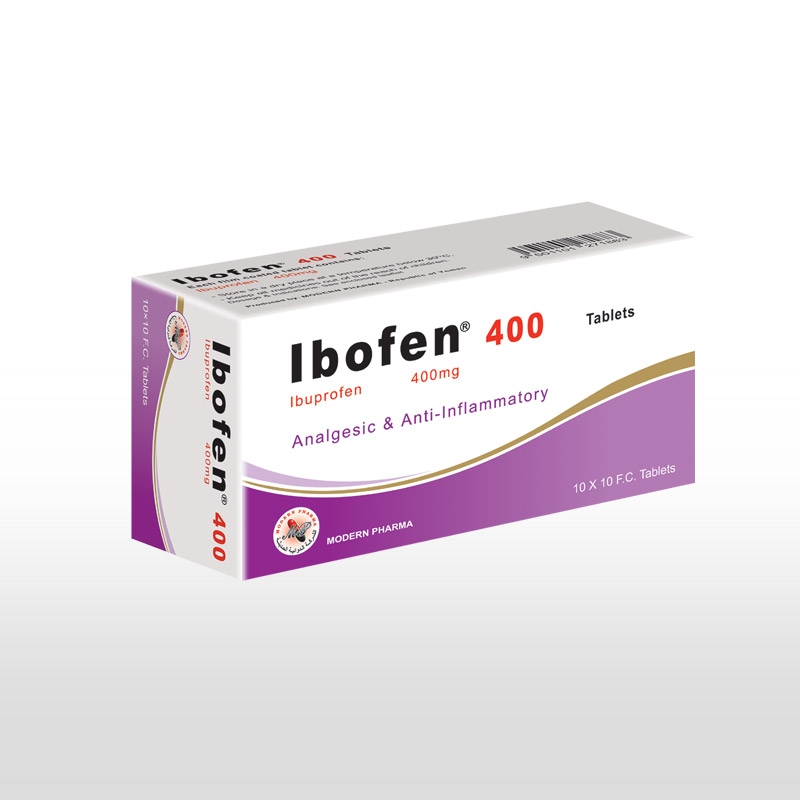IBOFEN 400
-Ibuprofen is a propionic acid derivative and non steroidal
anti-inflammatory drug (NSAIDs). It possesses potent analgesic
and antipyretic properties. It inhibit prostaglandin synthesis by
decreasing the activity of the enzyme cyclo-oxygenase,
which results in decreased formation of prostaglandin precursors.
- Ibuprofen is well absorbed orally and is 90 to 99% bound to
plasma proteins and has a plasma half-life of about 2 hours.
-It rapidly excreted in the urine mainly as metabolites and their
conjugated.
-About 1% is excreted in urine as unchanged Ibuprofen and
about 14% as conjugated Ibuprofen.
- It has fewer side-effects than other NSIDs..


